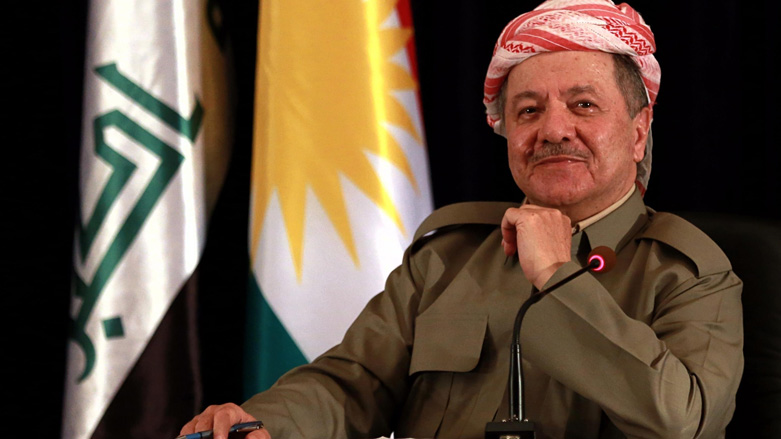On eve of Newroz, Kurdish leader urges all to follow coronavirus measures

ERBIL (Kurdistan 24) - In a public message marking the eve of the Kurdish New Year of Newroz, traditionally a joyous time of large crowds gathering together, Kurdistan Democratic Party (KDP) leader Masoud Barzani called upon all citizens of the Kurdistan Region to follow health guidelines enacted by health and police officials to curb the spread of the coronavirus.
“It is indeed unfortunate that our Region and the entirety of the world are facing the threat of a global pandemic which is resulting in extraordinary health and economic challenges to all countries across the globe,” he said in a written statement. “The Kurdistan Region is not exempt from COVID-19 and (it) has become a major challenge for the people of Kurdistan.”
Therefore, he argued, it is necessary “to call upon all sides, as a national duty, to strictly adhere to the health guidelines of the Kurdistan Regional Government (KRG). Adherence to the instructions of the various institutions of the KRG means protecting ourselves and reducing the risk of further expansion.”
He added that it was also fitting to praise the KRG for its initiatives that have been taken since the beginning of the epidemic.
KRG measures aimed at containing a regional outbreak include temporarily closing schools, declaring extended public holidays for government workers, canceling all religious services, and announcing curfews first in the provinces of Erbil and Sulaimani, but this week expanded across the entire Kurdistan Region.
Read More: KRG extends curfew another 5 days, now across entire Kurdistan Region
“Those initiatives have greatly contributed to preventing the spread of the virus and keeping it at the low levels compared to neighboring countries,” said Barzani.
As infections were beginning to spread from Iran to neighboring states, the KRG took swift measures to prevent an outbreak. There are now 39 cases in the autonomous region, with the latest one being that of a five-year-old child from Sulaimani province.
Iran was one of the first countries to catch the virus and it has now infected over 17,000 people there and killed about 1,200, as per official figures. The Iran numbers could be substantially higher amid testing difficulties and allegations of underreporting.
COVID-19 first emerged in China in late 2019 and still has, by far, the most total confirmed cases. It numbers almost double those of the second hardest-hit nation, Italy, which recently surpassed China in reported mortalities.
According to the World Health Organization (WHO), which declared it a global pandemic last week, the coronavirus has so far infected over 274,000 worldwide and killed more than 11,300.
The KDP president also expressed his appreciation for “medical doctors and health officials, the Security and Police forces, the Peshmerga forces and all other concerned parties for their efforts, which have kept the Kurdistan Region at a relatively healthier state.”
Newroz celebrations usually fall on March 21, which also marks the first day of Spring. The celebration is considered one of the most important days in Kurdish culture when those across the region and in the Kurdish diaspora abroad gather to dance, sing, and light bonfires to symbolize their freedom and hope for a brighter future.
This year, however, the KRG has canceled all official Newroz celebrations in the Kurdistan Region due to the risk such events would pose for a public now living under a strict coronavirus curfew.
“We are certain, relying on first and foremost, His Almighty and the complete cooperation between the people and the government,” the Kurdish leader concluded, “that we will overcome this obstacle.”
Editing by John J. Catherine
